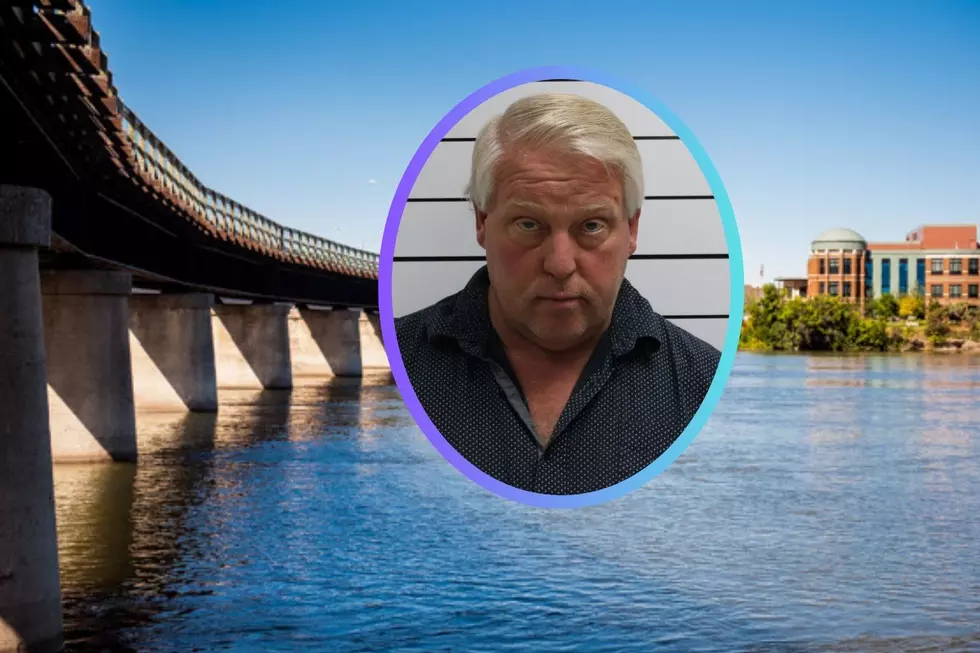
Legally In Montana, Can A River Be Blocked By Barbed Wire?
One of the greatest things about living in Montana is that most land is readily accessible to the public for recreation.
There's a Facebook group I follow about Montana, and the big debate as of late has been over barbed wire or electrified fencing over rivers in the state where people float.
I went to the Public Land Water Access Association to get the final answer, and it may surprise you. Basically, yes, a landowner has every right to fence off a river or stream. A lot of times this is for the purpose of maintaining land or fencing in cattle. As a recreationist, you ARE allowed to portage around the fence, provided you use a route that causes the least damage to the property.
It's called The Right to Portage, Establishment of a Portage Route:
This concept is described in MCA 23-2-311. It states:
(1) A member of the public making recreational use of surface waters may, above the ordinary high-water mark, portage around barriers in the least intrusive manner possible, avoiding damage to the landowner’s land and violation of the landowner’s rights.
(2) A landowner may create barriers across streams for purposes of land or water management or to establish land ownership as otherwise provided by law. If a landowner erects a structure that does not interfere with the public’s use of the surface waters, the public may not go above the ordinary high-water mark to portage around the structure.
(3) (a) A portage route around or over a barrier may be established to avoid damage to the landowner’s land and violation of the landowner’s rights, as well as to provide a reasonable and safe route for the recreational user of the surface waters.
(b) A portage route may be established when either a landowner or a member of the recreating public submits a request to the supervisors that a route be established.
(c) Within 45 days of the receipt of a request, the supervisors shall, in consultation with the landowner and a representative of the department, examine and investigate the barrier and the adjoining land to determine a reasonable and safe portage route.
(d) Within 45 days of the examination of the site, the supervisors shall make a written finding of the most appropriate portage route.
(e) The cost of establishing the portage route around artificial barriers must be borne by the department, including the cost of construction of notification signs of the route.
(f) Once the route is established, the department has the exclusive responsibility to maintain the portage route at reasonable times agreeable to the landowner. The department shall post notices on the stream of the existence of the portage route and the public’s obligation to use it as the exclusive means around a barrier.
(g) If either the landowner or the recreationist disagrees with the route described in subsection (3)(e), the person may petition the district court to name a three-member arbitration panel. The panel must consist of an affected landowner, a member of an affected recreational group, and a member selected by the two other members of the arbitration panel. The arbitration panel may accept, reject, or modify the supervisors’ finding under subsection (3)(d).
(h) The determination of the arbitration panel is binding upon the landowner and upon all parties that use the water for which the portage is provided. Costs of the arbitration panel, computed as for jurors’ fees under 3-15-201, must be borne by the contesting party or parties. All other parties shall bear their own costs.
(i) The determination of the arbitration panel may be appealed within 30 days to the district court.
(j) Once a portage route is established, the public shall use the portage route as the exclusive means to portage around or over the barrier.
(4) This part does not address the issue of natural barriers or portage around the barriers, and this part does not make the portage lawful or unlawful.
NOTE: Subsection 2 refers to things like “float gates” – hanging PVC pipe – which keep cattle in, but do not obstruct floaters.
I know. It's a lot. But if you're planning on floating this year, it's good to know the law. The last thing you want to do is be like THIS GUY who openly admits to trespassing in order to confront the owner of the land, who had every right to do what he did with the fencing. What I find the most ironic is how the entire article is about respect, yet that went out the window when he wanted to confront the land owner.
Floating is a wicked fun part of Montana summer. It's rare to come across a fenced off river, but if you do, now you know just what to do. In Montana, it's all about respect for the land and the owner of that land. Do that, and you'll have a great time.
Great Places To Float The River In Montana
15 Montana Hidden Gem State Parks You Need To Know About





